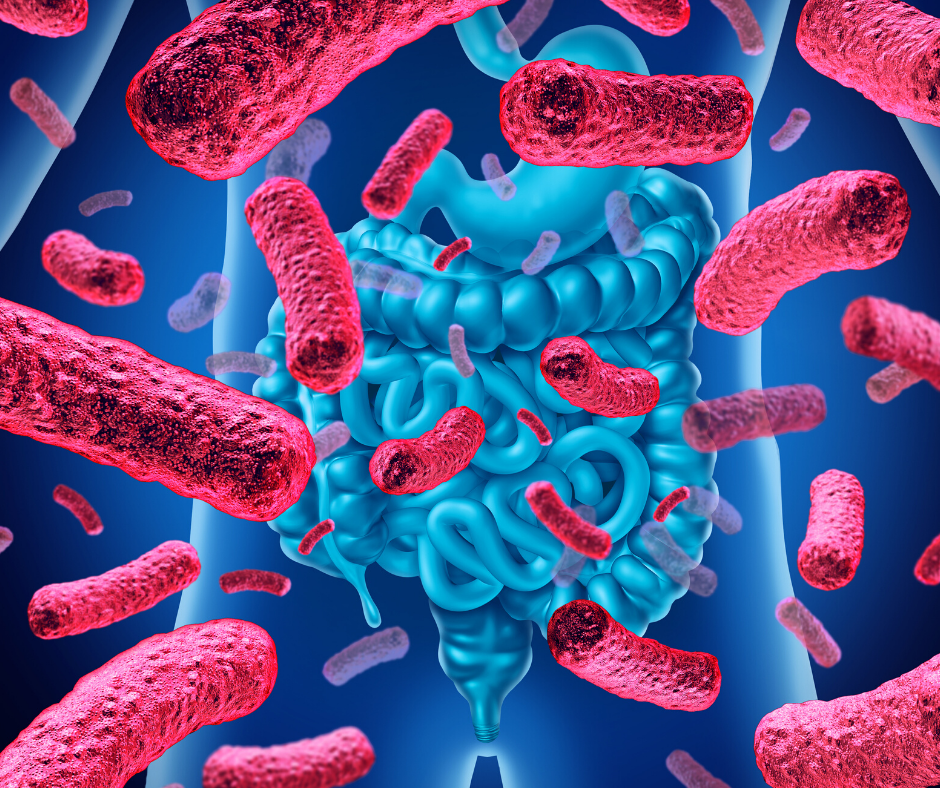Trust your Gut! How probiotics can boost your Immune System
Most of our Immunity Comes from our Gastrointestinal Tract
Our immune system is not confined to one particular organ but over 80% of the immune system resides in the gastrointestinal tract as receptor cells. Because of this location, what happens in your gut has a dynamic influence on the immune function. When your gut is healthy, your thriving population of beneficial bacteria, or probiotics, supports the immune system receptor cells. They provide a protective barrier within your colon and intestines. Optimizing and supporting the beneficial bacteria in your gut is one of the most powerful things you can do for your health and well being, including your immune health.
The Health Benefits of Probiotics
Probiotics influence many functions in the body. In addition to your immune health, researchers have found they affect your body weight, energy and nutrition, and your brain, both psychologically and neurologically. Your microflora impacts the expression of your genes, too, which can have a powerful effect on your health
Your good bacteria play a vital role in the development and maintenance of this mucosal immune system in your gut. They compete with the less-friendly microbes for both food and attachment sites on the receptor cells. As long as you have a healthy amount of good microbes, they’re usually able to prevail.
Probiotics also support your normal healthy response to allergens. Beneficial bacteria train your immune system to distinguish between non-harmful antigens and undesirable antigens, and to respond in a normal, appropriate way.
Probiotics and Weight Management
Increasingly, research confirms that probiotics play a key role in weight management. One human study showed how obese individuals reduced their abdominal fat by consuming a probiotic-rich fermented beverage for a 12-week period.
If you’re struggling to manage your weight, I suggest you take full advantage of the potential benefits of probiotics!
Your body needs beneficial gut bacteria to absorb certain undigested starches, fiber, and sugars in foods. When you have a good balance of bacteria, you can efficiently convert these carbohydrates into valuable sources of nutrients and energy.
Another important benefit of probiotics is for your body’s production of vitamin K and B vitamins. Probiotics also promote mineral absorption from the foods you eat. Equally valuable is their ability to help metabolize and break down body wastes.
The Gut & Brain Connection
Many people are also surprised to learn that their guts are essentially their second brains. Proof of this can be found in the fact that your gut produces more of the mood-influencing neurotransmitter serotonin than your brain does.
Studies show probiotics can benefit the communications within your gut-brain axis. You have two nervous systems, one in your brain and spinal cord, and another in your gastrointestinal tract. Made from the same type of tissue, they are connected to each other via your vagus nerve, which is the primary route for information sharing between your gut and your brain. Your diet is indeed linked to your mental health!
Probiotics and Healthy Skin
Probiotics benefit your skin health and especially the skin of children. Skin issues, particularly those commonly seen in infants, are thought to be due to a delay in the development of immune function. Adding in probiotics to your child's nutrition program can help boost their immune system and get through the school year healthy.
How to get Probiotics form your Diet?
Clearly, probiotics benefit your health from head to toe in many ways. They are so essential for a multitude of bodily functions that research suggests taking a probiotic supplement may be even more important than taking a daily multivitamin. Keep in mind that many of the nutrients you find in a multivitamin supplement, especially B vitamins, are made by beneficial bacteria in your gut.
The most ideal way to get the probiotics you need each day is to eat fermented veggies that you make at home or to consume other traditionally fermented foods rich in probiotic bacteria. Here are some sources.
Miso
Fermented Dairy: Yogurt & Kefir
Cultured Coconut Milk Yogurt.
Tempeh
Kombucha
Fermented Vegetables: Pickles, Sauerkraut, & Kimchi

